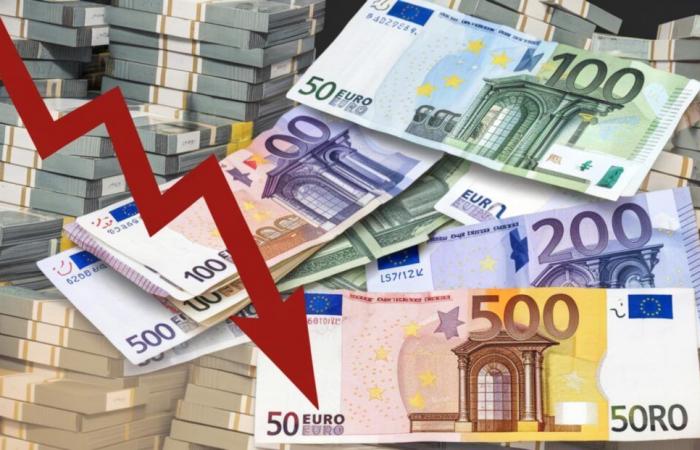The black currency market in Algeria has recorded a notable decrease in exchange rates in recent days, particularly affecting the euro and the dollar, two widely traded currencies. This drop comes in a context of economic reforms and seasonal variations in demand, in particular the decision taken by the Algerian state to increase the tourist allowance, which goes from 100 to 750 euros.
The euro, which often dominated the black market with rates exceeding 255 dinars in recent weeks even reaching 262 dinars, is currently trading at 247 dinars for purchase and 249 dinars for sale. This decline is linked to a reduction in demand, usually marked at the end of the year despite the needs for travel or informal commercial exchanges. By comparison, the official euro rate remains stable at 140 dinars, according to data from the Bank of Algeria.
A considerable drop in the euro and the dollar on the black market
The US dollar follows a similar trend. It is now negotiated around 235 dinars for purchase and 238 dinars for salewhile it was trading at significantly higher rates recently. On the official market, the dollar is quoted at 134 dinars. This decrease could reflect a slight slowdown in demand for this currency, despite its key role in international transactions.
Economy
Around twenty international companies are interested in Algeria's hydrocarbons
Experts attribute this situation to several factors. Demand for currencies on the black market is traditionally weaker at the end of the year, a phenomenon accentuated by stricter controls imposed by the authorities on informal financial flows. This is because the biggest consumers of foreign currency, traders and trabendists, do not buy foreign currency, leaving the field to “party-loving” travelers who are not really numerous in Algeria.
Stability is still far away
Furthermore, the announcement of the increase in the tourist allocation planned for 2025which will allow easier access to currencies in banks, also seems to have reduced pressure on the parallel market. Therefore, potential travelers prefer to wait for this new provision to come into force to benefit from it.
Although these declines offer some relief, the black market remains unavoidable for many Algerians. Genuine monetary reform, coupled with expanded access to currencies via banks, is necessary to reduce this dependence. Only a gradual alignment of official rates with those of the informal market can guarantee lasting stability.






